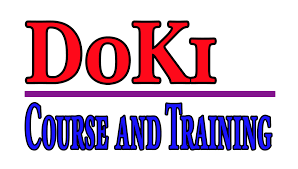The Role of Strategic Sourcing on the Performance of Large Manufacturing Firms in Kenya
DOI:
https://doi.org/10.61994/equivalent.v3i2.1157Keywords:
Strategic Sourcing, Supply Chain Drivers, Manufacturing Firms, Firm PerformanceAbstract
Strategic sourcing is a critical supply chain driver that goes beyond the normal acquisition of goods, services, and materials, to encompass on the overall long-term business objective by optimizing value through cost, quality, efficiency, and supplier relationships. On the other hand, among the major attributes blamed to highly contribute to the stagnation and declining performance of Kenya’s manufacturing sector include high cost of production, poor quality products, and inefficiencies due to delays in production process. While strategic sourcing has been empirically proven to help in addressing these issues, its effective integration and embrace in Kenya’s manufacturing sector remains vague. This paper therefore sought to address the extent to which large manufacturing firms in Kenya have embraced strategic sourcing and whether its level of integration is correlated with the current performance status of the sector. A cross-sectional research design was used which informed a mixed method approach where both quantitative and qualitative methods were used. The study targeted 553 large manufacturing firms in Kenya, where heads of supply chain were the unit of observation. Using slovin sampling formula, a preferred sample size of 233 respondents was established where the respondents were selected using a stratified random sampling technique. A questionnaire with both closed-ended and open-ended questions was used to collect primary data, which was analyzed both quantitatively and qualitatively. The findings revealed that most of the large manufacturing firms in Kenya though recognized the essence of strategic sourcing, had ineffectively embraced it, and only relied on traditional reactive sourcing that mainly focuses on costs. It was revealed that strategic sourcing had a significant and positive (β = 0.823; P=0.000<0.05) impact on performance of large manufacturing firms in Kenya. The study concluded that the low embrace of strategic sourcing was significantly associated with the declining performance of the large manufacturing firms in Kenya. It was therefore recommended that the large manufacturing firms in Kenya through supply chain managers should go beyond the normal sourcing that primarily focuses on costs, to be more proactive and focus on value optimization in order to be competitive.
References
Awory, O. B., Chege, D., & Namusonge, E. (2025). Supplier Relationship Management Strategy and Performance of Manufacturing Firms In Kenya. Journal of Applied Social Sciences in Business and Management, 4(1), 110-130.
Awuor, M. A., & Kimutai, B. (2020). Effect of strategic sourcing on performance of manufacturing firms in Kenya. International Journal of Supply Chain Management, 5(2), 88–97.
Çankaya, Y. S. (2020). The effects of strategic sourcing on supply chain strategies. Journal of Global Operations and Strategic Sourcing, 13(2),129-148.
Charles, M., & Ochieng, S. B. (2023). Strategic outsourcing and firm performance: a review of literature. International Journal of Social Science and Humanities Research (IJSSHR) ISSN, 2959-7056.
Chen, J. Y. (2022). Responsible sourcing and supply chain traceability. International Journal of Production Economics, 248, 108462. https://www.sciencedirect.com/science/article/abs/pii/S092552732200055X
Chepng’etich, C., Waiganjo, E., & Karani, A. (2016). Influence of Strategic Sourcing on Organizational Performance of State Corporation in Kenya: A Case of Kenya Power. International Journal of Management and Commerce Innovations. International Journal of Management and Commerce Innovation,3, (2), 127-137
Cooper, D., & Schindler, P. (2017). Qualitative research. Business research, 4(1), 160-182.
Ellegaard, C., Normann, U., & Lidegaard, N. (2022). Intuitive global sourcing–a study of supplier selection decisions by apparel SMEs. International Journal of Operations & Production Management, 42(2), 151-181.
Frederico, G. F. (2023). Rethinking strategic sourcing during disruptions: A resilience‐driven process contribution to knowledge on supply chains. Knowledge and Process Management, 30(1), 83-86.
Frederico, G. F., Kumar, V., & Garza-Reyes, J. A. (2021). Impact of the strategic sourcing process on the supply chain response to the COVID-19 effects. Business Process Management Journal, 27(6), 1775-1803.
Ha, A. Y., Shang, W., & Wang, Y. (2023). Supplier audit information sharing and responsible sourcing. Management Science, 69(1), 308-324.
Halassa, O., & Al Saed, R. (2023). The impact of supply chain drivers on the performance of Ministry of Health pharmacies in Jordan. Problems and Perspectives in Management, 21(2), 439.
Hamdani, R., Siregar, D. I., Astuti, A. T., Hardilawati, W. L., & Siregar, Z. M. E. (2023). Linking dynamic capability, supply chain and raw material uncertainty to Indonesian SMEs manufacturing operational performance. Calitatea, 24(193), 39-45.
Hervani, A. A., Nandi, S., Helms, M. M., & Sarkis, J. (2022). A performance measurement framework for socially sustainable and resilient supply chains using environmental goods valuation methods. Sustainable Production and Consumption, 30, 31-52.
Kamau, H. W., & Odari, S. (2019). Effect of Supplier Collaboration on Organizational Competitiveness of Manufacturing Firms in Kenya. International Journal of Recent Research in Social Sciences and Humanities, 4 (4), 28-32.
Kenya National Bureau of Statistics – KNBS. (2024). Economic Survey 2024. KNBS. Retrieved from: https://www.knbs.or.ke/wp-content/uploads/2024/05/2024-Economic-Survey-Popular-Version.pdf
Kiarie, D. M., Ngugi, P. K., & Rajab, F. A. (2021). Influence of supplier relationship management on performance of manufacturing firms in Kenya. International Journal of Supply Chain and Logistics, 5(3), 31-45.
Kim, C. K., Lee, C., Kim, D., Cha, H., & Cheong, T. (2023). Enhancing Supply Chain Efficiency: A Two-Stage Model for Evaluating Multiple Sourcing and Extra Procurement Strategy Optimization. Sustainability, 15(22), 16122. https://www.mdpi.com/2071-1050/15/22/16122
Kinuthia, J. K & Amuhaya, J. (2023). Sourcing strategies and organizational performance of Muranga co-operative creameries Kenya. Journal of Business and Strategic Management, 8(5), 92-115.
Korir, P. K & Kagiri, A. (2020). Effect of material sourcing strategies on organizational performance: a case of James Finlay (Kenya) Limited. International Journal of Supply Chain Management, 2(3), 1-17.
Kurgat, L., & Aila, F. (2021). The Effect of Early Supplier Involvement on Supply Chain Performance in Moi Teaching and Referral Hospital in Kenya. Journal of Economics, Management Sciences and Procurement, 1(1); 19-31.
Lewicka, E., Guzik, K., & Galos, K. (2021). On the possibilities of critical raw materials production from the EU’s primary sources. Resources, 10(5), 50-61.
Manjong, N. B., Marinova, S., Bach, V., Burheim, O. S., Finkbeiner, M., & Strømman, A. H. (2024). Approaching battery raw material sourcing through a material criticality lens. Sustainable Production and Consumption, 49, 289-303. https://www.sciencedirect.com/science/article/pii/S2352550924001805
Murithi, L. N., Ngugi, P. K., & Kiarie, D. (2024). Electronic Sourcing as an E-Procurement Practice and Its Role on Organizational Performance. Journal Integration of Social Studies and Business Development, 2(2), 125-132.
Ngozi, O. B & Dike, G. N. (2023). Outsourcing strategies and organizational performance in manufacturing firms in South-East, Nigeria. International Journal of Business & Law Research, 11(3), 86-102.
Patare, S., & Venkataraman, S. V. (2023). Strategies in supply chain competition: A game theoretic approach. Computers & Industrial Engineering, 180, 109242.
Prajogo, D. & Olhager, J. (2016). Supply chain integration and performance: The effects of long term relationships, information technology and sharing, and logistics integration International Journal of Production Economics, 135(1), 514 – 522
Rana, S. K., Kim, H. C., Pani, S. K., Rana, S. K., Joo, M. I., Rana, A. K., & Aich, S. (2021). Blockchain-based model to improve the performance of the next-generation digital supply chain. Sustainability, 13(18), 10008. https://www.mdpi.com/2071-1050/13/18/10008
Ross, D. (2021). Game Theory. In Zalta, E. N., editor, The Stanford Encyclopedia of Philosophy. Metaphysics Research Lab, Stanford University, Fall 2021 edition.
Rzeczycki, A. (2022). Supply chain decision making with use of game theory. Procedia Computer Science, 207, 3988-3997.
Sawe, F. B., Kumar, A., Garza‐Reyes, J. A., & Agrawal, R. (2021). Assessing people‐driven factors for circular economy practices in small and medium‐sized enterprise supply chains: Business strategies and environmental perspectives. Business Strategy and the Environment, 30(7), 2951-2965. https://onlinelibrary.wiley.com/doi/abs/10.1002/bse.2781
Sharma, M., Luthra, S., Joshi, S., & Kumar, A. (2021). Accelerating retail supply chain performance against pandemic disruption: adopting resilient strategies to mitigate the long-term effects. Journal of Enterprise Information Management, 34(6), 1844-1873.
Singh, R. K., & Modgil, S. (2025). Adapting to disruption: the impact of agility, absorptive capacity and ambidexterity on supply chain resilience. International Journal of Productivity and Performance Management, 74(2), 637-658. https://www.emerald.com/insight/content/doi/10.1108/ijppm-01-2024-0057/full/html
Singpurwalla, D (2013). A handbook of statistics: An overview of statistics. New York: Free Press.
Tanner, J. (2020). Neumann, John von/Morgenstern, Oskar: Theory of Games and Economic Behavior. In Kindlers Literatur Lexikon (KLL) (pp. 1-3). Stuttgart: JB Metzler.
Valentini, L. (2023). Sustainable sourcing of raw materials for the built environment. Materials Today: Proceedings. https://www.sciencedirect.com/science/article/pii/S2214785323041780
Vasnani, N. N., Chua, F. L. S., Ocampo, L. A., & Pacio, L. B. M. (2019). Game theory in supply chain management: Current trends and applications. International Journal of Applied Decision Sciences, 12(1), 56-97.
von Neumann, J., & Morgenstern, O. (1944). Theory of games and economic behavior. Princeton University Press.
Wowak, K. D., Handley, S., Kelley, K., & Angst, C. M. (2024). Strategic sourcing of multicomponent software systems: The case of electronic medical records. Decision Sciences, 55(3), 227-244.
Xiong, X., Li, Y., Yang, W., & Shen, H. (2022). Datadriven robust dual-sourcing inventory management under purchase price and demand uncertainties. Transportation Research, 160, 102671. https://doi. org/10.1016/j.tre.2022.102671
Zerihun, T B & Wondemalem, C. (2022). The effects of strategic sourcing on organization performance: the case of Ethiopian construction works corporation. Journal of Supply Chain Management Systems, 11(3), 1-12.
Zheng, M., Dong, S., Zhou, Y., & Choi, T. M. (2023). Sourcing decisions with uncertain time-dependent supply from an unreliable supplier. European Journal of Operational Research, 308(3), 1365-1379.
Zunac, A. G., Labas, L., & Svilicic, N. (2022). Speech fright management in business public appearances. Economic and Social Development: Book of Proceedings, 404-417.
Downloads
Published
Issue
Section
License
Copyright (c) 2025 Esther Njeri Muiruri, Noor Ismael Shale, Anthony Osoro

This work is licensed under a Creative Commons Attribution-NonCommercial 4.0 International License.

















